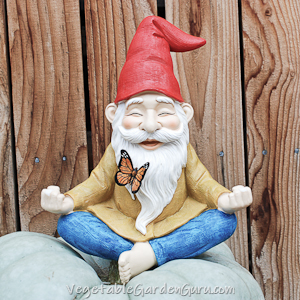| Back to Back Issues Page |
 |
|
Under the Arbor, Issue #012 -- Inauguration, Soil Blocks and Soil for Raised Beds January 20, 2021 |
January 20 Issue 12In this issue:
Inauguration DayToday is the inaugural issue of Under the Arbor, the new monthly newsletter from VegetableGardenGuru.com. You may be wondering why you're getting this email, and that's because many of you signed up for the "Lorraine's Garden" newsletter years ago. Unfortunately, "Lorraine's Garden" quit growing when I returned to work at an all-consuming job in 2014. But it has now been "reincarnated" with a new website name and online newsletter, named (respectively), www.vegetablegardenguru.com and Under the Arbor. I hope you'll stay with me as I share best practices, happy developments, encouraging news topics and practical, easy applications gleaned from in-depth research and trials. Together we can heal our soils, put carbon back into the ground where it belongs, and avoid the increasing threats to our health brought about by declines in food nutrition. But if you would like to be removed from future issues, you may unsubscribe below.
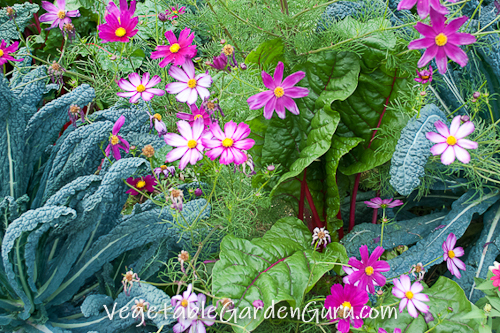
But today is, of course, the real Inauguration Day, and in the United States we are starting a new administration. I pray that it will be good - for our co-existence as nations, for the health of our planet, for all the world's people, as well as all creatures that walk, swim, fly, crawl and otherwise move and pulse with life. Human activity has brought damage to ecosystems worldwide, and as we wake up and seek to heal the negative impacts of our actions, I pray we will be able to find, and create, solutions to these ills as we move forward. My new focus is bringing you cutting-edge vegetable gardening knowledge built around the principles of regenerative agriculture, which works with nature and her soil ecosystem to help you grow the most flavorful and nutritious food possible. The speeches, songs, poems and prayers of the inauguration today all spoke of unity, and I would add to that chorus that unity is what we already are in truth. We ARE one human species, however much our little separate egos try to convince us otherwise. The virus is teaching us this lesson: we are all in this together because in essence, we are all one. Like fingers on a hand, we are sustained by the same blood supply, and it doesn't serve the little finger to disparage the thumb because it is different than itself. Each finger has its own job to do, and together they are much more powerful than any by itself.
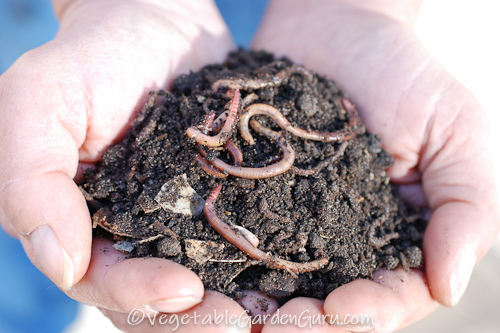
Gardening with Regenerative PrinciplesSo how can we be active participants with each other in healing our collective ills? How can "just little old' me" contribute to these grand and lofty ideals? Each of us has goodness at our core, and we can take the measure of our goodness and use it to help others, in whatever way we are called, based on our inherited and self-matured gifts, proclivities and talents. For me, that is nurturing life by growing, eating and sharing nutritious food, as well as teaching others how to do the same. I believe that growing food in a sustainable, natural way, one which works with the life in the soil, is greatly empowering and healing on multiple levels. Our current food production and distribution systems are profoundly unsustainable, and cutting-edge regenerative agriculture is proving that a better way is not only possible, but eminently doable, producing superior food while sequestering carbon underground. When practiced locally, it requires few inputs and brings rewards beyond just the maintenance and health of the body. Almost anyone can participate in some way, whether that is cutting down on or eliminating processed food, buying more organic vegetables, shopping at farmer's markets, joining a CSA farm, growing tomatoes in a container on the balcony, putting a raised bed garden in the front yard, or having a full-blown organic vegetable garden that works with the natural soil ecosystem in our backyard. Future issues of Under the Arbor will continue to spread the word, as well as point the way. Starting Seeds in Soil Blocks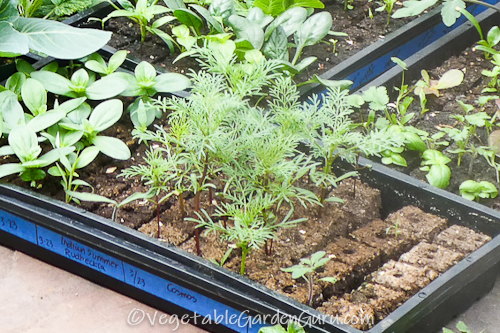
I've been starting my own seeds indoors under lights for a couple of decades now, but for the last couple of years I have been using soil-blocks.html Sinstead of seed-starting trays. The brilliance of soil blocks is that they are sustainable, cost-effective, and excellent (the BEST!) for root development. Why are they the best? Because of "air pruning". When a growing plant's roots hit the hard side of pot or seed-tray cell, they turn sideways. They keep growing seeking a way "out", where they can spread wide and deep. They end up going around and around the pot, becoming "root bound", and after this has happened, they will never develop as extensive a root system as they would have if they were planted in the ground from the start, where their roots would grow mostly unimpeded. But what happens in a soil block is that the root's growth goes into dormancy when the tip hits air. This may not sound like a good thing, but it IS… because when that seedling is finally planted out, its roots just start growing again, but outward and downward as they should, rather than round and round in little tight circles. And the farther out and down those roots grow, the more water and nutrients they can gather, which makes them more nutritious and drought-resistant, as well as able to yield more come fall.
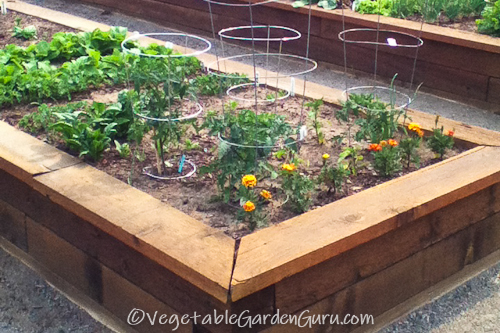
Soil for Raised BedsIf you are going to garden in a raised bed this year, you will want make sure to fill it with nutritious, healthy, high-organic-matter soil. There is a lot of advice out there on how to fill your raised bed, from using free materials like old logs or rotting firewood, straw, leaves and manure, to "organic" potting mix in bags from the store. But not all of these are going to put nutrition into your plants, and without the right balance of materials to feed your microbial partners, your plants won't be as nutritious as they could be. Find out what you need to include (and exclude!) to nurture your soil ecology and optimize the health and nutrition of your vegetables, and therefore yourself. That's it for now. See you in February! |
| Back to Back Issues Page |
